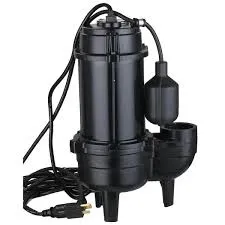TEL:
+86 13120555503
English
- Afrikaans
- Albanian
- Amharic
- Arabic
- Armenian
- Azerbaijani
- Basque
- Belarusian
- Bengali
- Bosnian
- Bulgarian
- Catalan
- Cebuano
- Corsican
- Croatian
- Czech
- Danish
- Dutch
- English
- Esperanto
- Estonian
- Finnish
- French
- Frisian
- Galician
- Georgian
- German
- Greek
- Gujarati
- Haitian Creole
- hausa
- hawaiian
- Hebrew
- Hindi
- Miao
- Hungarian
- Icelandic
- igbo
- Indonesian
- irish
- Italian
- Japanese
- Javanese
- Kannada
- kazakh
- Khmer
- Rwandese
- Korean
- Kurdish
- Kyrgyz
- Lao
- Latin
- Latvian
- Lithuanian
- Luxembourgish
- Macedonian
- Malgashi
- Malay
- Malayalam
- Maltese
- Maori
- Marathi
- Mongolian
- Myanmar
- Nepali
- Norwegian
- Norwegian
- Occitan
- Pashto
- Persian
- Polish
- Portuguese
- Punjabi
- Romanian
- Russian
- Samoan
- Scottish Gaelic
- Serbian
- Sesotho
- Shona
- Sindhi
- Sinhala
- Slovak
- Slovenian
- Somali
- Spanish
- Sundanese
- Swahili
- Swedish
- Tagalog
- Tajik
- Tamil
- Tatar
- Telugu
- Thai
- Turkish
- Turkmen
- Ukrainian
- Urdu
- Uighur
- Uzbek
- Vietnamese
- Welsh
- Bantu
- Yiddish
- Yoruba
- Zulu
Telephone: +86 13120555503
Email: frank@cypump.com
Feb . 16, 2025 07:10 Back to list
septic pump
Proper maintenance and timely pumping of septic systems are integral to preventing costly repairs and extending the lifespan of your septic tank. Having firsthand experience with septic system management, I can vouch for the importance of regular upkeep as a proactive approach to home care. This article provides an expert perspective on the frequency, process, and benefits of pumping septic systems, ensuring reliability and health for your household.
The service provider will typically inspect the tank and the absorption field for any signs of damage, leaks, or backups. This inspection helps homeowners spot potential issues before they escalate, saving money and preventing health hazards. Benefits of Regular Septic Pumping The authority of septic system experts agrees that the benefits of this maintenance are numerous. Regularly pumped and maintained septic systems minimize risks such as unsightly, odorous overflows in your lawn, and the costly replacement of the entire system. Neglecting to pump regularly not only harms your system but also poses severe consequences for your property and the local environment. Overflows contaminated with sewage can pollute nearby water sources, soil, and may even seep into your well water, posing health risks to your family. Regular maintenance represents a small investment compared to the protection it provides against these corrections. Building Trust with a Reliable Provider Constructing a relationship with a dependable septic service company is prudent. Seek professionals with a good reputation, certified credentials, comprehensive insurance, and client-focused service. Transparency in pricing and process helps build trust, ensuring you feel comfortable and confident in their care for your home’s needs. For homeowners, maintaining your septic system's health through routine pumping is a mix of experience-backed practice and expert advice that assures long-term savings and safety. By adhering to these guidelines, you ensure your home remains a positive environment now and for future generations, evidencing a commitment to conducting responsible, preventative maintenance. Pumping a septic system is an act of due diligence, proving that responsible homeownership involves careful planning, informed decisions, and the enlistment of certified professionals to uphold your living standards. Let your attention to detail in this regard reflect your commitment to sustainability, health, and the environment, further ensuring your asset's longevity and utility.


The service provider will typically inspect the tank and the absorption field for any signs of damage, leaks, or backups. This inspection helps homeowners spot potential issues before they escalate, saving money and preventing health hazards. Benefits of Regular Septic Pumping The authority of septic system experts agrees that the benefits of this maintenance are numerous. Regularly pumped and maintained septic systems minimize risks such as unsightly, odorous overflows in your lawn, and the costly replacement of the entire system. Neglecting to pump regularly not only harms your system but also poses severe consequences for your property and the local environment. Overflows contaminated with sewage can pollute nearby water sources, soil, and may even seep into your well water, posing health risks to your family. Regular maintenance represents a small investment compared to the protection it provides against these corrections. Building Trust with a Reliable Provider Constructing a relationship with a dependable septic service company is prudent. Seek professionals with a good reputation, certified credentials, comprehensive insurance, and client-focused service. Transparency in pricing and process helps build trust, ensuring you feel comfortable and confident in their care for your home’s needs. For homeowners, maintaining your septic system's health through routine pumping is a mix of experience-backed practice and expert advice that assures long-term savings and safety. By adhering to these guidelines, you ensure your home remains a positive environment now and for future generations, evidencing a commitment to conducting responsible, preventative maintenance. Pumping a septic system is an act of due diligence, proving that responsible homeownership involves careful planning, informed decisions, and the enlistment of certified professionals to uphold your living standards. Let your attention to detail in this regard reflect your commitment to sustainability, health, and the environment, further ensuring your asset's longevity and utility.
Share
Next:
Latest news
-
ISG Series Vertical Pipeline Pump - Chi Yuan Pumps Co., LTD.|Advanced Hydraulic Design&Energy-Efficient Solutions
NewsJul.30,2025
-
ISG Series Vertical Pipeline Pump - Chi Yuan Pumps Co., LTD.
NewsJul.30,2025
-
ISG Series Vertical Pipeline Pump - Chi Yuan Pumps Co., LTD.|energy-efficient fluid handling&industrial durability
NewsJul.30,2025
-
ISG Series Vertical Pipeline Pump - Chi Yuan Pumps | Advanced Engineering&Industrial Efficiency
NewsJul.30,2025
-
ISG Series Pipeline Pump - Chi Yuan Pumps | High Efficiency, Energy Saving
NewsJul.30,2025
-
ISG Series Vertical Pipeline Pump-Chi Yuan Pumps|High Efficiency&Reliable Performance
NewsJul.29,2025










